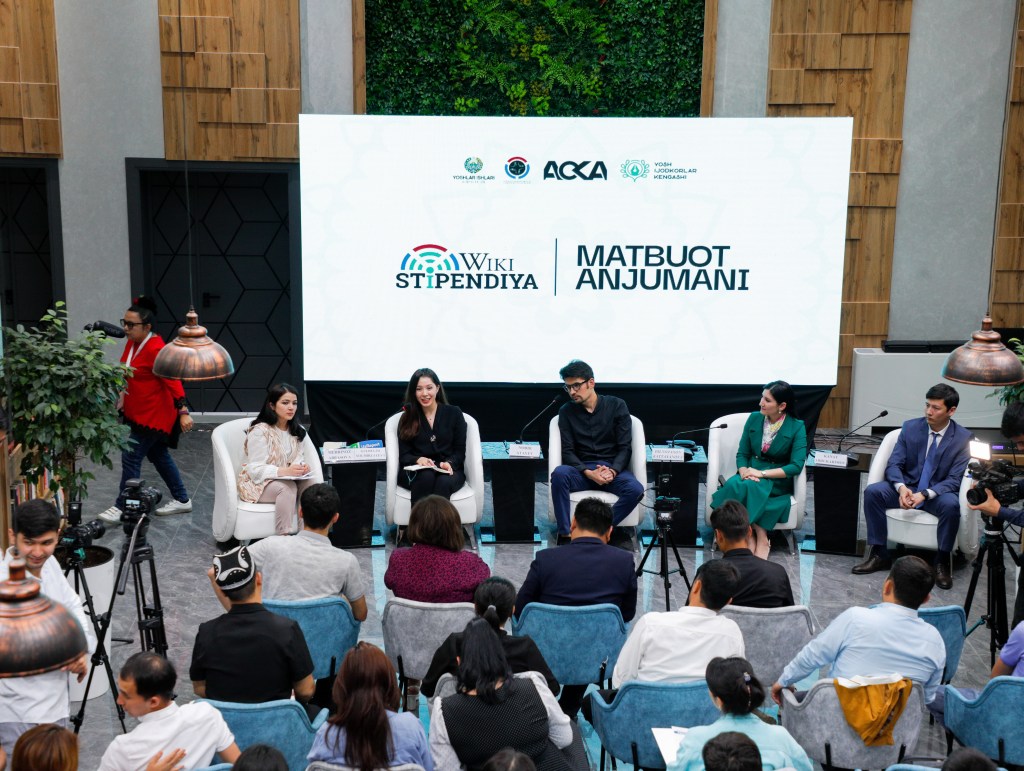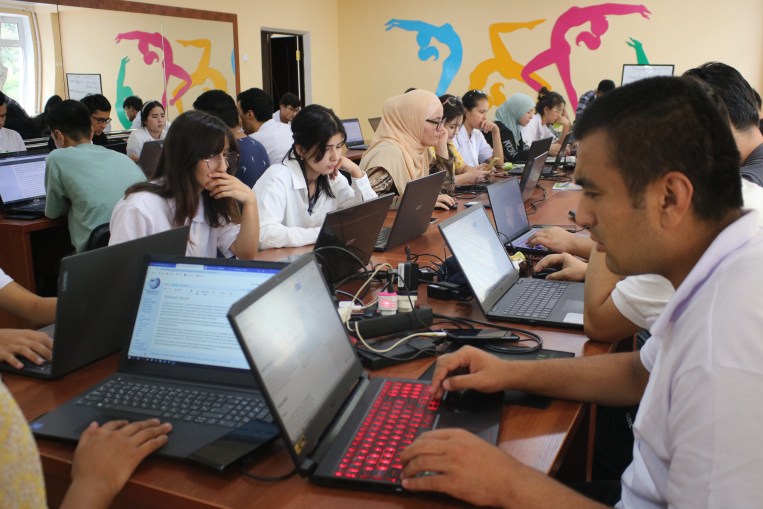This blog post was inspired by the individuals who work tirelessly to organize and move forward the Wikimedia communities in the Central Asia region. Please meet @Nataev – a long term Wikimedian from Central Asia sharing about their work in the Uzbek language community.

When did you start editing Wikipedia and how did it all start?
I started editing Wikipedia in 2009 when I was studying in the USA. The English version of the article about my hometown of Isfana (renamed Razzaqov in March 2022) was so small that I decided to improve it. Then I realized that you can not only write articles, you can also upload photos on Wikimedia Commons. The first three years, I mostly wrote about Central Asia in the English Wikipedia, and then I noticed that the section of Wikipedia in the Uzbek language was poor. In 2012, I became an administrator of the Wikipedia section in Uzbek language. Currently I am more actively editing in Uzbek, English, Russian, Turkish and Kyrgyz. It turns out I’ve been editing Wikipedia for 13 years now.
In 2020, Wikimedians of the Uzbek language User Group was established.
On December 15, 2020, we founded the Wikimedians of the Uzbek language User Group. A user group does not have to be located in a particular country. For instance, I am a citizen of Kyrgyzstan and live in Kyrgyzstan, while other members of the group live in Uzbekistan. Since there are also many Uzbek speaking people in other countries of our region, in Tajikistan and in Kazakhstan, we decided to set up a language section. Our group received a small grant from the Wikimedia Foundation and organized Central Asia Month. People created content in Uzbek about Central Asia for a month, and we rewarded the winners at the end. We also organized a Wikipedia Book Month marathon where people wrote about books in Uzbek for a month.
Participation of the Wikimedians of the Uzbek language User Group in the 2022 WikiScholarship Edit-a-thon.
In 2019, the president of Uzbekistan issued a decree on improving digital content in the Uzbek language. Various government agencies came to understand that Wikipedia is part of the digital content. For a while, the agencies themselves developed template articles on Wikipedia, and that was noticeable by the quality of the articles. Then we were contacted by the Agency for Youth Affairs staff in order to discuss with the admins and also with the community about a possible collaboration.
At first, of course, we had our doubts, as this is the state agency and we had no experience in cooperating with state agencies previously. I consulted with other Wikimedians from Europe and Russia. It turns out that this is a normal practice, you just need to agree in advance that there will be no thematic restrictions by the state.
The Youth Affairs Agency offered their support and started a huge edit-a-thon – WikiScholarship from May to December 2022. Active participants received a one-time $5,000 scholarship for the first prize. You can learn more about the results of this work here. On behalf of our User Group, we evaluated the content of the articles.

As part of the WikiScholarship edit-a-thon, we also organized two camps with 150 participants in both. It was awesome. Participants were students, teachers, but mostly young people from the regions of Uzbekistan. We spent a week learning how to edit, create articles, participated in entertaining games, had meetings with celebrities, and played sports. In the first round of training, we created more than 8,000 articles over a week, and in the second round over 20,000 articles. The Youth Affairs Agency organized everything and invited three Uzbek-speaking administrators from Kyrgyzstan as well.
On average, 10,000 new articles were created per month. For the first time ever, we launched a wiki audio project, started uploading photos, writing articles about women, about sports – a lot of cool projects are going on. The main goal is to keep the community engaged after the edit-a-thon. We have about 900 people in our Telegram group every day discussing something, which means our community has increased.
More than 200,000 Wikipedia articles in the Uzbek language.
On November 26, 2022 the number of articles created in the Uzbek language Wikipedia exceeded 200 thousand. Thus, the Uzbek section ranked fifth among Wikipedia’s in the Turkic languages, after Turkish, Tatar, South Azerbaijani and Kazakh. There are now many articles that were not on the Uzbek section of Wikipedia before. We are very pleased that Uzbek-speaking users can now find information on many topics they are interested in. We are also pleased to see a noticeable increase in the number of participants who want to contribute to Uzbek-language content.
Looking to the future, how do you envision collaboration and cooperation among the language communities of Central Asia?
I think it’s time to work together, for example, there are communities in Central and Eastern Europe (CEE) – they know each other, they do joint projects regularly. Our region, in my opinion, is also ready for collaboration between language communities. Before this, we had a very small community, and so far Kyrgyz, Tajik and Turkmen communities are still not large. But almost everyone has a phone, everyone is connected to the Internet.
If in 2009 being in the U.S. I knew it was a cool project, years later in 2015 it also became relevant in our country and people started paying attention. So, the time has now come to unite, organize events together and write projects together. I myself am probably a good example. I, a Kyrgyzstani citizen, speak six languages, including Uzbek. Since it’s my native language, I’m in the Uzbek Wikipedia, let’s say, more of an editor. But on the other hand, I can also work in Kyrgyz. We have another administrator from Kyrgyzstan who knows Kyrgyz very well and recently was granted the administrator rights on Kyrgyz Wikipedia for three months. There is so much we can do together.

Can you help us translate this article?
In order for this article to reach as many people as possible we would like your help. Can you translate this article to get the message out?
Start translation